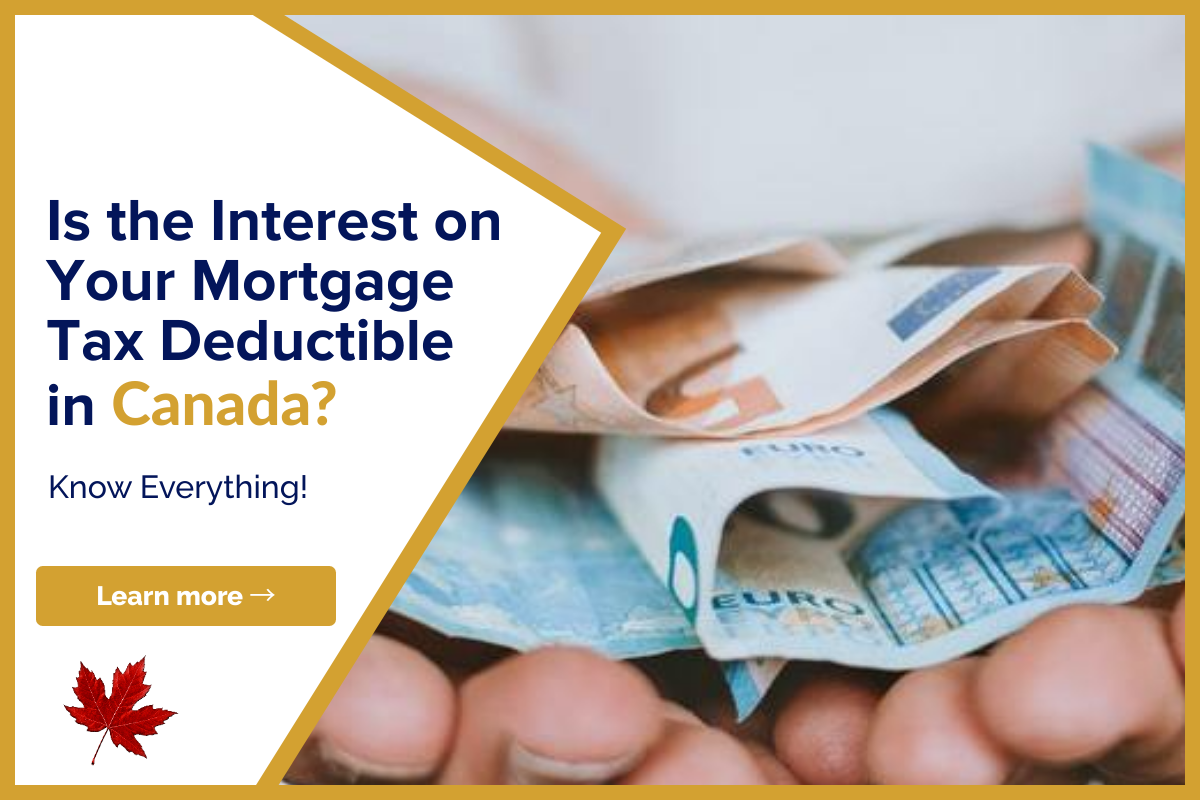During the early days of the mortgage business, brokers would require a lot of paperwork…

Is the Interest on Your Mortgage Tax Deductible in Canada?
Now you can listen to our blog post, “Is the Interest on Your Mortgage Tax Deductible in Canada?” while on the go,
Taxes are important for the economy to function. They help build government programs, pay for healthcare, finance and education of our cities, municipalities and towns. As you grow old in Canada, you find multiple ways here and there to save your money on taxes. You will learn about which expenses are tax-deductible, how you can decrease your taxable income and other such benefits, so you can get ahead in life while making a contribution to our country.
One of the questions you may come across will be on your mortgage is tax-deductible in Canada or not? Simply put, that is just not how our tax system works. But the good news is if you ever decide to sell your principal residence, and you make a profit from the sale, you do not need to pay any taxes on that money. While you may get annoyed knowing that you cannot claim the interest on your mortgage in Canada, you can still benefit from selling your house, tax-free.
Why is Mortgage Interest Not Tax Deductible in Canada?
Two homeowners deducted over $100,000 in interest expenses on their mortgage loan between 1994 and 1996, according to a case presented before the Supreme Court of Canada in 2009. Unfortunately, the deductions were deemed unlawful by the Minister of National Revenue, who identified them as “abusive tax avoidance.” Following legal action by the homeowners, the Supreme Court of Canada ruled in favour of the Canadian government, declaring that tax deductions on mortgage interest payments are not allowed unless the residence generates money through rental.
What If You Use Your House To Run a Small Business?
You can deduct certain costs linked with your workspace if you work from home or run a small business from your home. This may even include expenses relating to your home, such as energy, but you will not be able to deduct mortgage interest.
For example, if the homeowner sets up a home office with a computer, fax machine, and printer, their power cost will increase due to the increased watts that the office generates. They may also require office supplies, as well as the payment of additional personnel to assist them with their task. They can next contact the Canada Revenue Agency to see if their home qualifies as a business and, if so, what expenses they can deduct. If it qualifies, they can deduct expenses like materials, property taxes (or condo fees), and other associated charges from their taxes, and they’ll be able to claim a deduction for how much they spent during that tax year.
What if the House Has a Rental Income?
As previously stated, one of the only ways to earn a tax break on your mortgage interest is to rent out your house or condominium. To put it another way, you’d have to turn your house into an “investment property.” If you rent out one or more of your rooms, or need to modify to make a basement suite more habitable, and then earn money from a new tenant, or tenants, your expenses are considered rental-related, and you should be able to deduct them from their taxes. You will not be eligible for any tax deductions if your property, whether it is a house, apartment, or condo, does not generate any money from a business or rent.
Can You Try to Make Your Mortgage Interest Tax Deductible?
Mortgage interest payments are not tax-deductible unless certain circumstances apply, such as renting out your home to earn money. Mortgage interest tax deductions will not apply to home-based enterprises that do not involve any type of renting. So, if you’re considering changing your house into a small company or rental property to save money on taxes, keep in mind all of the aspects and be aware of what you’re getting yourself into.
Trying to deduct your mortgage interest by changing your home residence into an investment property, like any other investment, comes with its own set of dangers. You must be certain that you will receive a return on your initial investment in the property. It could take months, if not years, to see a return, and you’ll have to pay taxes on any profit you make if you decide to sell your house later. If you’re considering doing something like this, talk to a financial expert first. They will be able to inform you whether or not your firm will be profitable.
The Bottom Line
At Lionsgate, we specialize in helping people get the extra cash they need, obtain funding for private mortgages, as well as for other real estate transactions. If you are looking to buy land in Canada, get a mortgage or apply for a loan, fill out the form below. Or, You can leave us a message and we will try to connect you with local lenders and sources that best meet your needs.
If you found this article helpful, please share it on your timeline and with someone you care about. Also, visit our blog to read similar helpful articles on finance, real estate, and getting mortgages.




